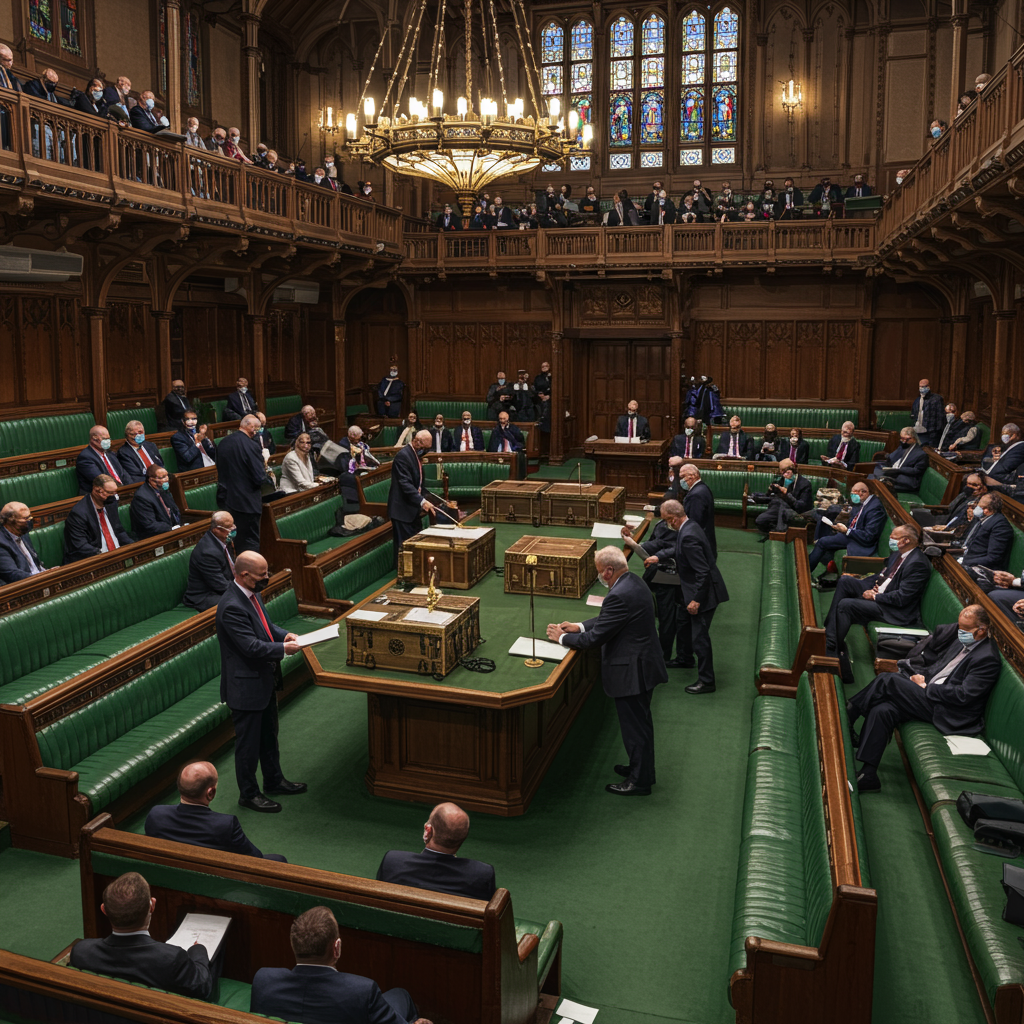A historic decision from the world’s highest judicial body has reshaped global climate action. The International Court of Justice (ICJ), the United Nations’ principal judicial organ, has issued a landmark advisory opinion affirming states’ profound legal duties to safeguard the global climate system. Critically, this unanimous ruling explicitly singles out fossil fuels as a central component of these obligations, declaring that continued reliance or support for them could constitute an “international wrongful act.” This pivotal moment signals a new era of accountability, where failure to prevent climate harm could lead to legal liabilities, including demands for compensation and restitution. This ruling provides unprecedented legal clarity, empowering vulnerable nations and activists alike in their fight for climate justice.
The Landmark Ruling: A New Era of Accountability
The International Court of Justice’s advisory opinion, spanning 133 pages, represents a seismic shift in international environmental law. Presented at the Peace Palace in The Hague by ICJ President Yūji Iwasawa, the document emphatically underscored the “urgent existential threat” posed by escalating climate breakdown. This landmark opinion, while technically non-binding, carries immense legal and moral authority, clarifying existing international law and setting a powerful precedent for future climate litigation and policy.
What the ICJ Said
The ICJ’s ruling is comprehensive, covering a wide array of matters under international law. It asserts that states bear legal responsibility for activities that harm the climate system. Crucially, it clarifies that governments must prevent harm, and any failure to do so could result in orders to pay reparations or undertake other forms of restitution. This transforms climate reparations from a moral appeal into a potential legal obligation, adding significant pressure on major polluters. The court emphasized that the global nature of the climate crisis does not absolve individual states of their specific responsibilities. This means even if a state is not part of specific climate change treaties, its policies must still align with broader international law.
Fossil Fuels: The Explicit Target
Perhaps the most impactful aspect of the ICJ’s decision is its direct and unambiguous focus on fossil fuels. The court declared that a state’s failure to take “appropriate action” to protect the climate system from greenhouse gas emissions, specifically citing the production and consumption of fossil fuels, the granting of exploration licenses, or the provision of fossil fuel subsidies, “may constitute an international wrongful act attributable to that state.” This statement is profoundly significant. Historically, fossil fuels (coal, oil, and gas), despite being the primary drivers of human-caused climate breakdown, were notably absent from the main text of the 2015 Paris Agreement. It was only in 2023 that countries tentatively pledged to “transition away” from them, a commitment often diluted by some governments. The ICJ’s direct address removes any ambiguity. Moreover, the court confirmed states are legally liable for the actions of their private sectors, requiring them to regulate corporate activities contributing to the climate crisis. This imposes robust obligations on states to compel fossil fuel producers to take drastic and immediate action.
The Legal Foundations and Broader Implications
The ICJ’s opinion firmly rejected the argument from major greenhouse gas emitters that their climate obligations were confined solely to the UN Framework Convention on Climate Change (UNFCCC) and the Paris Agreement. This was a critical point of contention during the two-week hearing, where representatives of high-emitting nations argued against expanding legal interpretations beyond these frameworks. The court resoundingly dismissed this narrow view, asserting that a broad spectrum of international treaties and customary international law applies to states’ climate duties.
Beyond the Paris Agreement: A Web of International Law
The court clarified that state responsibilities extend far beyond the UNFCCC and the Paris Agreement. It explicitly listed other applicable treaties, including the UN Convention on the Law of the Sea, the Vienna Convention for the Protection of the Ozone Layer, the Montreal Protocol, the Convention on Biological Diversity, and the UN Convention to Combat Desertification. Beyond these, customary international law also plays a vital role. Principles such as sustainable development, common but differentiated responsibilities, equity, intergenerational equity, and the precautionary principle were all cited as foundational. The court also underscored the essential duty of states to cooperate, emphasizing that uncoordinated actions would be ineffective in addressing the global climate challenge. While the Paris Agreement grants flexibility in setting climate targets, the ICJ stated this discretion is not limitless; national climate plans must lead to tangible results.
Human Rights and Climate Justice
A profound aspect of the ICJ’s ruling is its strong articulation of the link between environmental protection and human rights. The court asserted that a clean, healthy, and sustainable environment is a fundamental precondition for exercising many human rights. These include the right to life, the right to health, and the right to an adequate standard of living, encompassing access to water, food, and housing. This ruling integrates climate responsibility into the core of international law as a duty to protect the very conditions for life across generations. This connection reinforces the moral imperative with a clear legal framework, offering new avenues for climate litigation based on human rights violations.
The Catalyst: Vanuatu’s Unwavering Fight
This landmark advisory opinion from the ICJ is the culmination of years of tireless campaigning. The initiative began not with powerful nations, but with a small group of Pacific island law students and persistent diplomacy led by the island nation of Vanuatu.
From Classroom to Courtroom: A Student-Led Movement
The journey started in 2019 when students from the University of the South Pacific, forming the “Pacific Islands Students Fighting Climate Change” (PISFCC), took a class assignment and transformed it into a global diplomatic endeavor. Their aim was to leverage the ICJ to clarify how international law protects present and future generations from the climate crisis. After facing initial rejections from many governments, Vanuatu, under the visionary leadership of its Minister for Climate and the Environment, Ralph Regenvanu, became the sole nation willing to champion this crucial effort. Over six years, this student-led movement and Vanuatu forged a formidable global coalition, securing endorsement from the Pacific Islands Forum and eventually garnering support from 18 “ICJ Champions” and 132 co-sponsoring nations. This culminated in a UN General Assembly resolution in March 2023, formally requesting the ICJ’s opinion and sending the case to The Hague. The campaign innovated the ICJ process by facilitating regional convenings and gathering powerful community testimonies, including “Witness Stand” videos from Indigenous and frontline voices.
Vanuatu’s Existential Stakes
Vanuatu’s dedication to this campaign is deeply rooted in its profound vulnerability to climate change. Despite contributing less than 0.0016 percent of global emissions, the nation faces a near-constant state of emergency due to rapidly rising sea levels and intensifying cyclones. Its very name, translating to “an island that will stay,” highlights the existential threat. For Vanuatu’s Attorney General, Arnold Kiel Loughman, the stakes could not be higher: “The survival of my people and so many others is on the line.” The devastating impacts are palpable, with the “Tree of Life” in Vanuatu toppled by cyclones in 2023 and further damaged by an earthquake in 2024. For Minister Regenvanu, the ICJ campaign was not a gamble but a strategic imperative to exhaust all legal and diplomatic avenues in the face of decades of inadequate progress from traditional climate negotiations.
What This Means for Global Climate Action
The ICJ’s advisory opinion, though non-binding in the direct enforcement sense, serves as an authoritative interpretation of existing international law. This provides a powerful new legal tool for climate campaigners, vulnerable states, and future policy decisions.
Accountability and Reparations: A Legal Obligation
The ruling provides a strong legal basis for states to be held accountable for climate harm. It implies that states harmed by climate change could theoretically bring legal claims against those responsible. While proving a direct causal link between emissions and specific damage has historically been challenging, the court noted it is not impossible, especially with advancing scientific evidence. Courts could order various forms of reparations, including the restoration of infrastructure and ecosystems. In cases where damage is irreparable, financial compensation may be due. This strengthens the legal position for demands for compensation, potentially influencing mechanisms like the Loss and Damage fund.
Inspiring Future Climate Lawsuits
Climate campaigners and representatives of vulnerable countries expressed overwhelming delight with the outcome. Vanuatu’s Minister for Climate Change, Ralph Regenvanu, hailed it as a “milestone moment for climate justice,” confirming what vulnerable nations have asserted for so long: that states have clear legal obligations to act on climate change. This document is expected to be a vital tool in upcoming climate negotiations and is highly likely to inspire a new wave of lawsuits, both domestically and internationally. The ruling reshapes what is legally possible, actionable, and potentially enforceable, opening the door for further legal claims. Vanuatu plans to take the document to the UN General Assembly to seek a resolution affirming its findings, hoping that this “warning has been heard.”
A Growing Wave of Climate Jurisprudence
The ICJ’s ruling is not an isolated event but part of a growing trend in international jurisprudence addressing the climate crisis. It is the third of four top courts to issue such a document, creating a powerful trifecta of legal precedents:
Inter-American Court of Human Rights (IACHR): Concluded earlier that month that a human right to a healthy climate exists, urging states to regulate fossil fuel extraction.
International Tribunal for the Law of the Sea (ITLOS): Ruled that governments must go beyond Paris Agreement commitments to protect oceans from climate change, explicitly identifying greenhouse gas emissions as pollutants.
- African Court on Human and People’s Rights: Has just begun its process on similar issues.
- www.theguardian.com
- www.thenation.com
- www.climatechangenews.com
- www.npr.org
- www.ciel.org
Of all these, the ICJ holds the widest jurisdiction and plays a crucial role in harmonizing and integrating international law. These combined legal developments offer hope and a clear mandate for heightened accountability in addressing the climate crisis, marking a significant victory for climate advocates globally.
Frequently Asked Questions
What exactly did the UN’s top court rule about states’ climate duty and fossil fuels?
The International Court of Justice (ICJ) issued an advisory opinion stating that countries have a legal duty to prevent harm to the global climate system. Crucially, the court explicitly identified continued production, consumption, granting of exploration licenses, or subsidizing of fossil fuels as actions that “may constitute an international wrongful act” attributable to a state. This means governments are legally obligated to act on climate change, specifically addressing fossil fuels, and failure to do so could lead to liability for compensation or restitution.
Is the ICJ’s advisory opinion legally binding on all countries?
ICJ advisory opinions are not directly legally binding in the same way as a judgment in a contentious case. However, they carry immense legal and moral authority. They are considered authoritative interpretations of existing international law. This means they clarify what the law currently is, providing a powerful legal framework that can significantly influence future international negotiations, domestic climate legislation, and serve as a foundational basis for new lawsuits against governments or corporations for climate-related harm.
How might this ICJ ruling impact future climate negotiations and lawsuits?
This ruling transforms climate reparations from a moral appeal into a potential legal obligation, adding pressure for major polluters. It is expected to be a vital tool in upcoming climate negotiations, strengthening the position of vulnerable nations seeking stronger commitments and accountability. For lawsuits, the opinion provides a strong new legal basis for activists and states to pursue legal claims, both domestically and internationally, against those failing to meet their climate duties, including calls for policy changes or financial compensation for climate damage.




